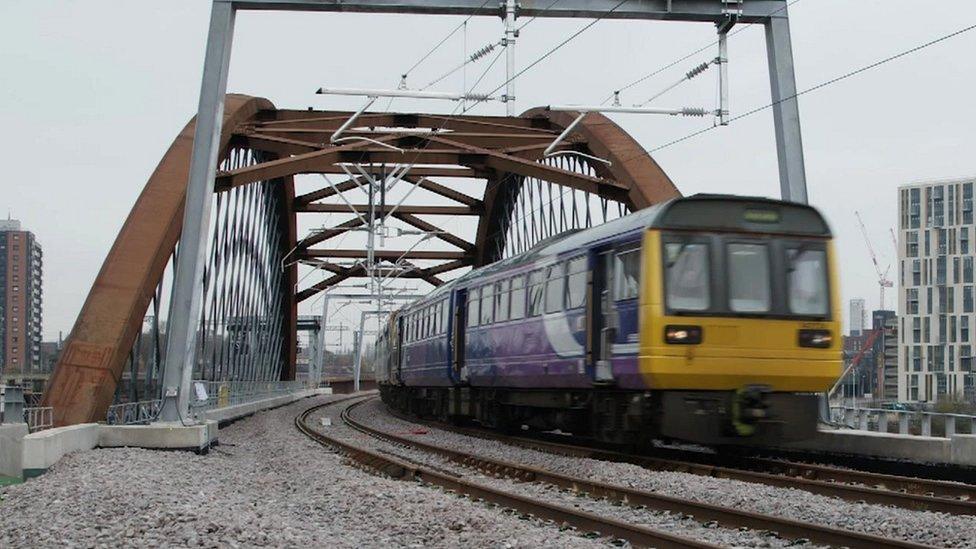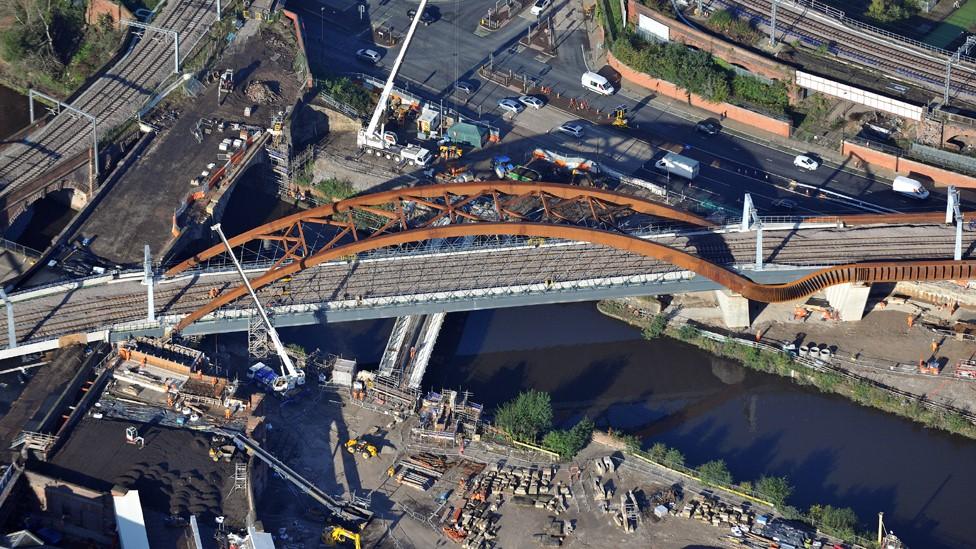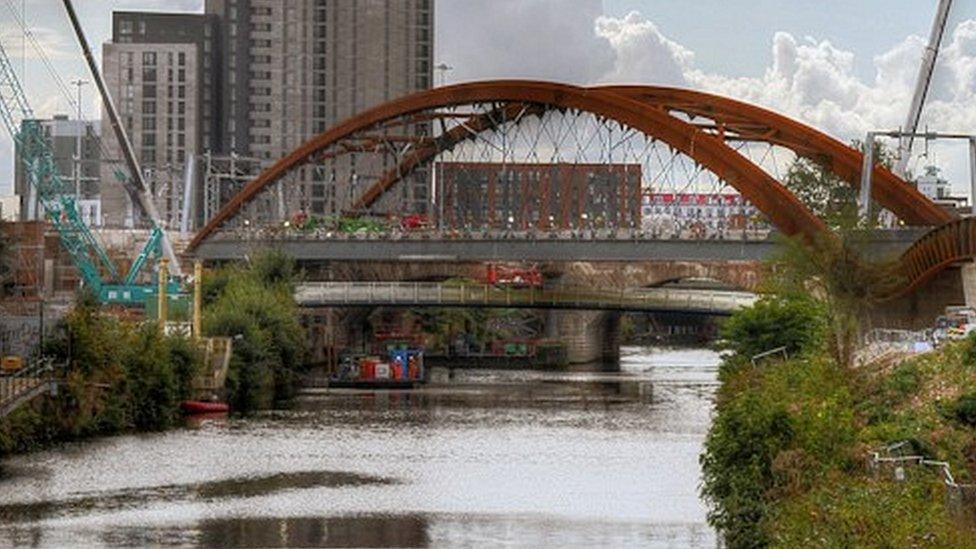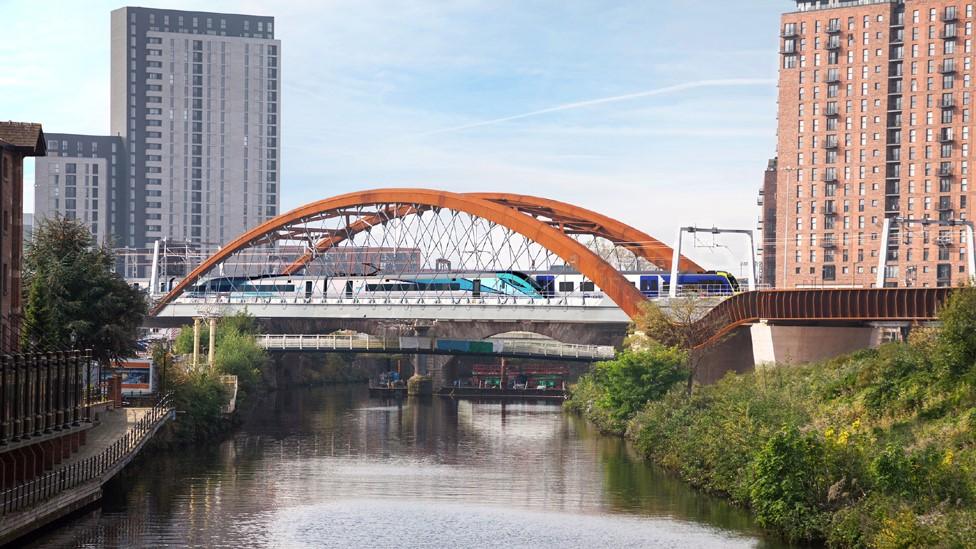Manchester Ordsall Chord rail link opens to passengers
- Published

The Ordsall Chord has been called the "centrepiece" of the Great North Rail Project
An £85m rail link has opened alongside the world's first passenger railway.
The Ordsall Chord connects Manchester's three main stations, linking the city's northern and southern parts.
Taking two years to build, it is the "centrepiece" of the £1bn Great North Rail Project to upgrade the region's links, a Northern Rail spokesman said.
It is located near rail pioneer George Stephenson's bridge, which linked Liverpool and Manchester on the world's first passenger railway in 1830.

It links Piccadilly, Oxford Road and Victoria stations
Crossing the River Irwell, the link eases a bottleneck caused by train movements in and out of Manchester Piccadilly.
It will provide direct links from the north to Manchester Airport once the new timetables start in May 2018, a spokesman said.
As Manchester's Piccadilly and Victoria stations are connected for the first time - via Oxford Road station - there will be faster and more frequent services, he added.
Peter Jenkins, the head of transport at architects BDP, said: "I've been working on this for six years and it's been a difficult project to work on - it's been controversial with lots of difficult moments.
"But it was just great to go on a train with passengers.
"I'm sure [George Stephenson] would have been thinking, 'Why haven't they connected Victoria and Piccadilly?' and it's kind of a mystery why it hasn't happened for 180 years."

It took two years to build the link
Martin Frobisher, route managing director at Network Rail, said: "The completion of Ordsall Chord is a seminal moment in the Great North Rail Project, which will transform train travel for millions of customers across the north.
"The old is giving birth to the new. We are mirroring the vision of George Stephenson for the benefit of the communities we serve for generations to come."
- Published9 November 2017

- Published23 March 2011